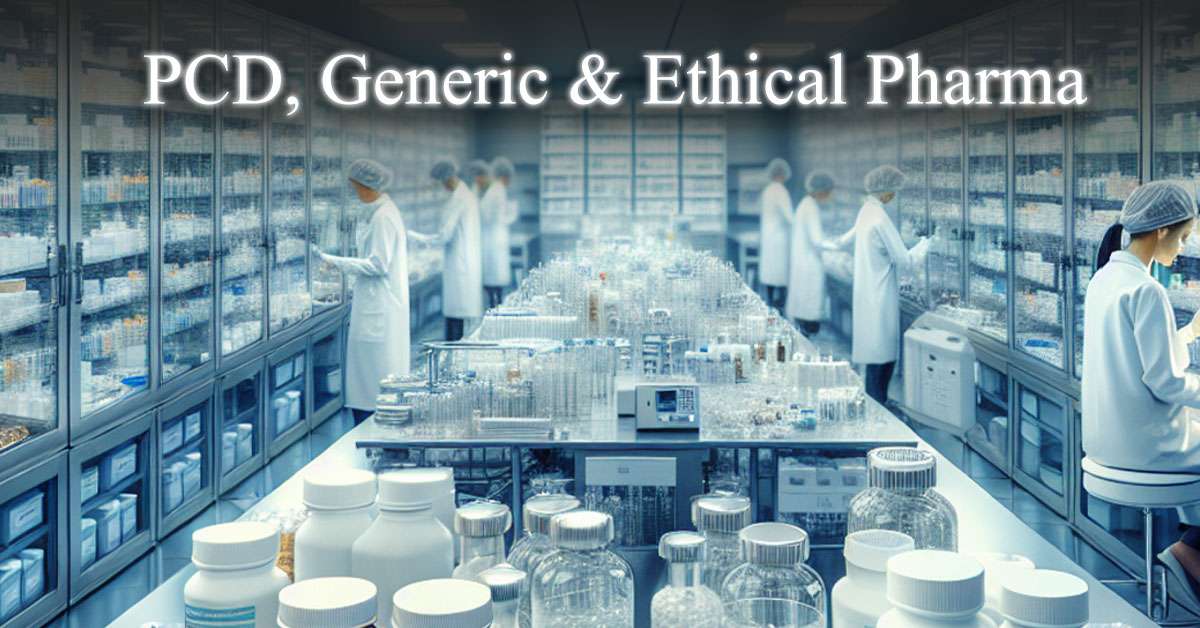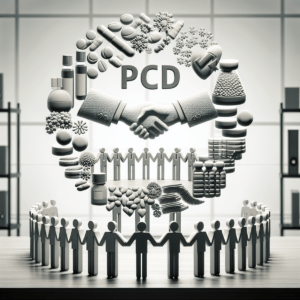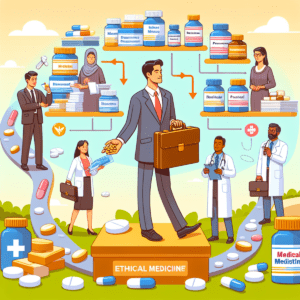Quick Enquiry

PCD, Generic And Ethical Pharma: What Are They And What Are The Differences Between Them?
The pharmaceutical industry in India is a sprawling ecosystem, intricately linked with the healthcare sector and impacting the lives of millions. Aspiring entrepreneurs seeking entry into this dynamic field are often faced with the choices of PCD (Propaganda Cum Distribution), Generic, and Ethical Pharma models.
In this blog, we will delve into the depths of each, unravelling the intricacies that define them.
PCD Sector:

PCD, an acronym for Propaganda Cum Distribution, represents a unique model wherein a pharma company enters into a franchise agreement with an individual or a group. This agreement grants the franchise owner rights for marketing, distribution, and the usage of the pharma company’s domain name. This model serves as a boon for those with limited capital, offering a pathway into the pharma market with relatively low barriers to entry.
Key benefits of the PCD model include:
Low Capital Investment: PCD requires minimal financial outlay, making it accessible to a broader range of aspiring entrepreneurs.
Limited Infrastructure: Unlike larger pharmaceutical setups, PCD operations do not necessitate vast premises for initiation.
Minimal Staffing Requirements: The PCD model allows for a lean startup phase, eliminating the need for an extensive workforce.
Generic Sector:

In the Generic Pharma sector, medicines are manufactured by PCD pharma companies and directly supplied to retailers through a robust sales support team and distribution channel. The crux of this model lies in providing affordable alternatives to brand-name drugs, particularly vital in a country like India, where economic considerations heavily influence consumer choices.
Key advantages of the Generic Pharma model encompass:
Cost-Effective Alternatives: Generic drugs offer the same active and inactive ingredients as their brand-name counterparts at a fraction of the cost.
Accessibility in Lower-Income Areas: The affordability factor makes generic medicines particularly popular in regions where financial constraints impact healthcare decisions.
Appeal to Regular Medicine Consumers: Individuals requiring regular medication find the generic pharma model advantageous in managing recurring medical expenses.
Ethical Medicine:

The Ethical Medicine model involves pharmaceutical franchise companies engaging medical representatives to directly promote their products to doctors and healthcare providers. Unlike over-the-counter medications, ethical medicines are prescription-based and are synonymous with high quality.
Key benefits of the Ethical Medicine model include:
Exclusive Prescription Medicines: Medications in this model are available solely through ethical channels, enhancing their perceived quality and controlled distribution.
Higher Profit Margins: Entrepreneurs operating within the ethical medicine sector often enjoy increased profit margins due to the exclusive nature of prescription medications.
Direct Engagement with Healthcare Professionals: The promotional efforts in this model are tailored towards healthcare professionals, ensuring a more targeted approach.
Conclusion:
In conclusion, comprehending the distinctions between PCD, Generic, and Ethical Pharma models is imperative for those navigating the pharmaceutical landscape. The PCD model offers an entry point with minimal financial constraints, the Generic Pharma model caters to price-sensitive markets, and the Ethical Medicine model focuses on high-quality prescription drugs. Each model presents unique advantages, providing diverse opportunities for growth and success in the ever-evolving Indian pharmaceutical sector. Entrepreneurs armed with this knowledge can make informed decisions, contributing to the industry’s resilience and continual advancement.

